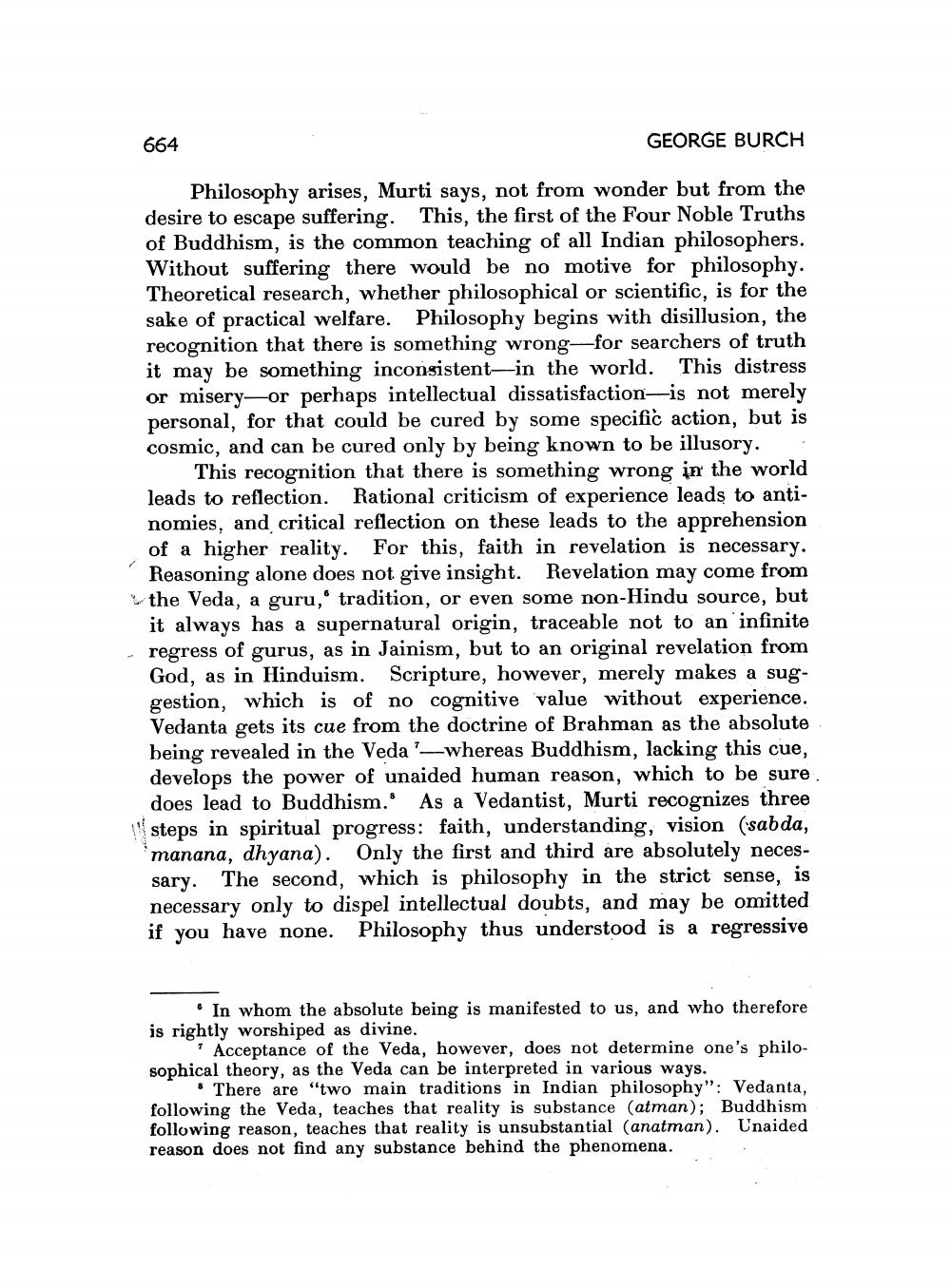________________
664
GEORGE BURCH
Philosophy arises, Murti says, not from wonder but from the desire to escape suffering. This, the first of the Four Noble Truths of Buddhism, is the common teaching of all Indian philosophers. Without suffering there would be no motive for philosophy. Theoretical research, whether philosophical or scientific, is for the sake of practical welfare. Philosophy begins with disillusion, the recognition that there is something wrong—for searchers of truth it may be something inconsistent-in the world. This distress or misery—or perhaps intellectual dissatisfaction is not merely personal, for that could be cured by some specific action, but is cosmic, and can be cured only by being known to be illusory. .
This recognition that there is something wrong in the world leads to reflection. Rational criticism of experience leads to antinomies, and critical reflection on these leads to the apprehension of a higher reality. For this, faith in revelation is necessary. Reasoning alone does not give insight. Revelation may come from the Veda, a guru, tradition, or even some non-Hindu source, but it always has a supernatural origin, traceable not to an infinite regress of gurus, as in Jainism, but to an original revelation from God, as in Hinduism. Scripture, however, merely makes a suggestion, which is of no cognitive value without experience. Vedanta gets its cue from the doctrine of Brahman as the absolute being revealed in the Veda'-whereas Buddhism, lacking this cue, develops the power of unaided human reason, which to be sure does lead to Buddhism. As a Vedantist, Murti recognizes three steps in spiritual progress: faith, understanding, vision (sabda, manana, dhyana). Only the first and third are absolutely necessary. The second, which is philosophy in the strict sense, is necessary only to dispel intellectual doubts, and may be omitted if you have none. Philosophy thus understood is a regressive
• In whom the absolute being is manifested to us, and who therefore is rightly worshiped as divine.
Acceptance of the Veda, however, does not determine one's philosophical theory, as the Veda can be interpreted in various ways.
There are “two main traditions in Indian philosophy”: Vedanta, following the Veda, teaches that reality is substance (atman); Buddhism following reason, teaches that reality is unsubstantial (anatman). Unaided reason does not find any substance behind the phenomena.




